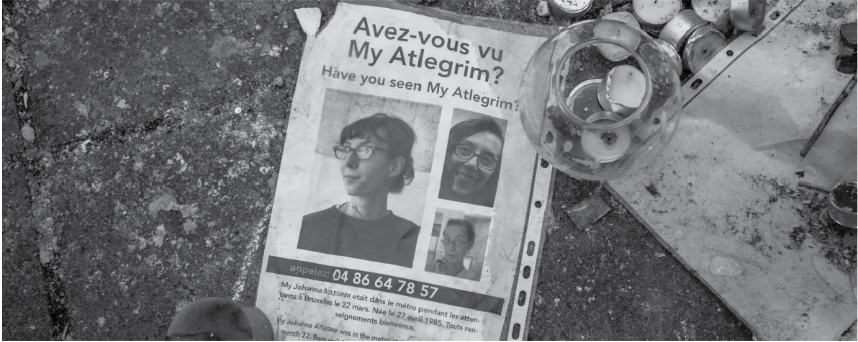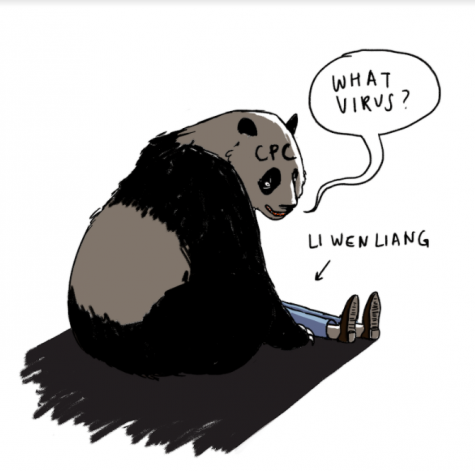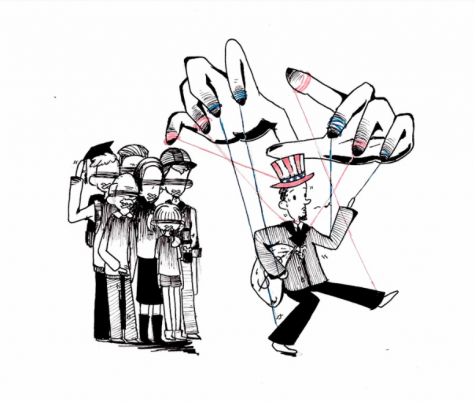A R-EU-NION IN THE UNION
Left behind in the wake of terrorist attacks.
On the morning of Tuesday, March 22, travelers flocked out of the Brussels Airport in panic and disarray as smoke trailed behind them. Two suicide bombers had detonated at the airport, killing at least ten and injuring scores more.
Later that day, the same horror was repeated at Maelbeek metro station. Smoke and flames enveloped the streets as emergency personnel tended to the wounded. In the end, over thirty lives had been lost and hundreds more injured. ISIS claimed responsibility immediately.
The scene of the tragedy was Brussels, home to many central European Union institutions including the EU Commission and the European Parliament. In addition to housing the headquarters of NATO, Brussels is the home of Molenbeek, a suburb inhabited by Islamic extremists, among whom there are ISIS sympathizers and even activists.
Sadly, this is hardly the first time Europe has been hit with a devastating attack. Last November, Paris was hit by successive bombings, in which 130 innocent civilians were killed, along with seven perpetrators. “Europe is currently facing the highest terror threat in more than ten years,” declared Robert Wainwright, current head of Europol, to the German newspaper Neue Osnabrücker Zeitung; he estimates that up to five thousand jihadists have returned from Iraq or Syria after fighting or training with ISIS.
This is only more alarming considering the fact that every single perpetrator of the Paris Attacks was an EU citizen who had returned from the Middle East. Brussels was hardly the first terrorist attack Europe or the world had faced, and regrettably it doesn’t look like it will be the last.
Amidst all the terror and grief and the terrible certainty of more to come, it’s easy to give into temptation and sink into a helpless despair. A tragedy that has once been seen as so removed and so impossible is now a very real and lethal danger, the worst act of terror the small, peaceful nation of Belgium has ever suffered. According to RT news, Federica Mogherini, the EU’s foreign-policy was in tears at a press conference while saying that Belgium is “suffering the same pain that [Jordan] has known and knows every single day.”
Similarly, there is an equally strong temptation, if not even greater, to surrender to fear and give in to hate, furthering the rift that stands between the Muslim world and the West.
GOP primary frontrunner Donald Trump capitalized on the attack, using fear to further his political standing, and to justify his divisive, discriminatory proposal to ban Muslims from entering the country. “It’s a total disaster, and we have to be very careful in the United States,” said Trump. “We have to be very careful and very vigilant as to who we allow in this country.” Unfortunately, this populist message works.
Other fear mongering politicians have raised a message of hate and division, and it’s hard to argue against them in the face of all the horrific images from Brussels and Paris attacks alike.
With such catastrophe, the EU’s core values of openness and freedom of movement are being put to the test. The Schengen Agreement, which guarantees freedom of movement within the European Union, has already been suspended to allow certain nations with a significant influx of refugees to increase border checkpoints.
The movement to dismantle the treaty entirely has gained momentum. This vicious cycle of division and destruction is sure to continue. As Francois Hollande, President of France, put it on his Twitter account: “The attacks have struck all of Europe and not only Brussels.”
Of course, there is a need for a strong response. CNN reports that in response to the New Year’s threat, Charles Michel, Prime Minister of Belgium, declared the following in a nationally televized address: “I believe that we are being confronted with a new stage in the history of Europe. We have to defend our way of life…We all have to be mobilized.” But this doesn’t mean widespread discrimination, unnecessary generalization or the vilification of an entire people.
While there isn’t definitive evidence of terrorists disguising themselves as helpless refugees to gain entrance into Europe, it is suspected that at least two of the Paris attackers entered the Union via refugee camps. Perhaps the most terrifying truth is that a single mistake, any slip-up has fatal and devastating consequences. ISIS and other terrorist organizations only need to get it right once, while law enforcement agencies cannot afford a single mishap. With horrific images of death and destruction circulating through the media, there has been serious backlash against refugees and Angela Merkel, Chancellor of Germany and champion of the EU’s open-door policy. Already Merkel has negotiated a deal with Turkey to lower the number of refugees crossing through the Aegean Sea.
There also looms the greater question of the large Muslim community already found in Europe, including those such as Molenbeek. The undeniable rift between members of the Muslim community and the remainder of European society surely will strain and expand, and understandably so. The reflex reaction would suggest shutting down all European borders and stemming the flow of refugees, given that any slip can be so devastating. However, the key is not to overreact.
ISIS wants nothing more than for the West to affirm their narrative of a skirmish to the death between the Islamic faithful and infidels. It would only lead to a recruiting boom among marginalized Muslims. ISIS wants the “us vs. them” mentality. To portray the Islamic faith as the enemy and all Muslims as outsiders would be walking right into their hands. ISIS wants the West to seem as if they have declared war on all Muslims, rather than ISIS alone.
Times of trial like this demand patience instead of fear. “There is no way any community can make itself immune to terror attacks,” Simon Jenkins, former editor of Times of London, writes for The Guardian, “Intelligence and surveillance can go so far, but the bombers and killers will get through any net.” Eventually somebody always gets through.
Security only goes so far. To respond in blind anger and conscienceless retaliation would play right into the hands of ISIS.
Many must agree with Jenkins. It seems so simple. But as true as it may be, his opinion is one that is difficult to hold onto. Who could possibly see the terrible images of such deadly, devastating attacks and not be stirred into anger, fear, or hate? As fear-mongering demagogues of the right-wing continue to take advantage of the horrific scenes of Brussels and Paris to spread their authoritarian and divisive policy, does Europe have the courage, the fortitude and the unwavering determination to stand up and respond? Can it overcome the many challenges it faces – both internal and external – to stick to its value of inclusion and unity that it claims to embody? Simply put, it’s a choice between what is easy and what is right.

Chris is the Features Editor of The Circle Voice. Having written since Third Form, mostly for the Opinions section, he enjoys telling stories through the...












